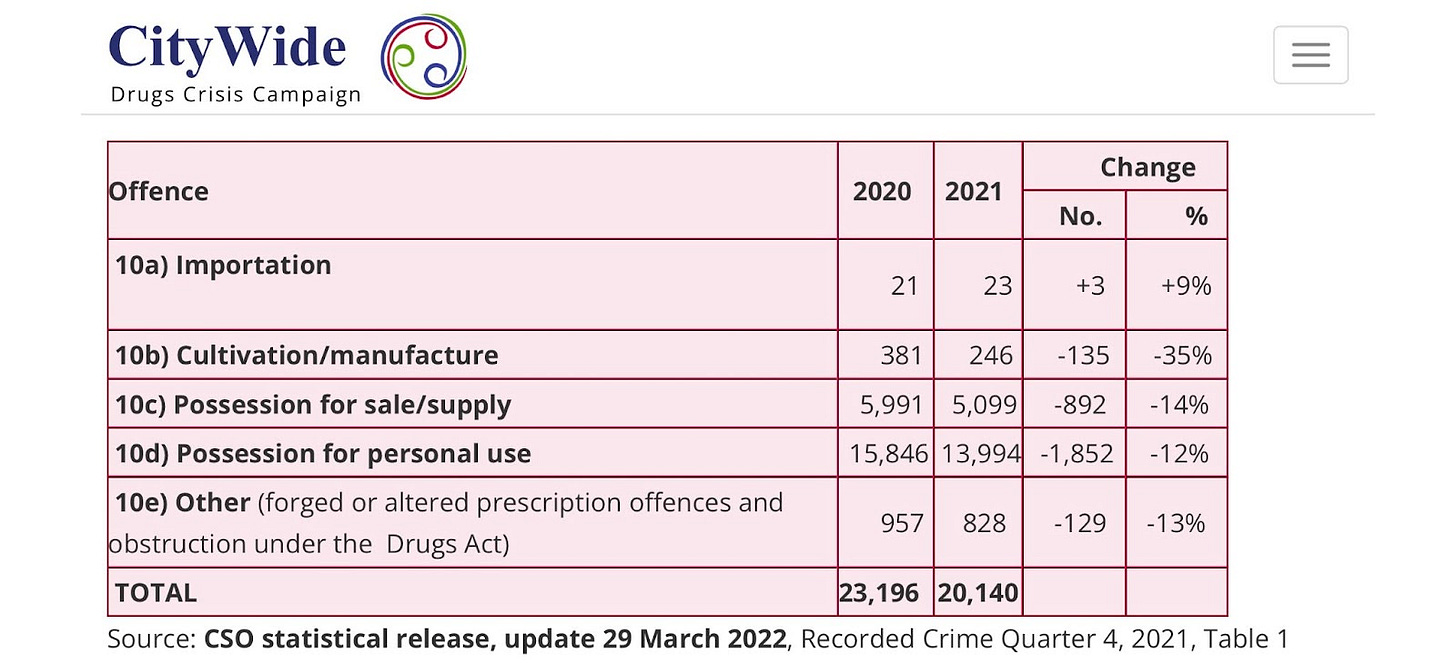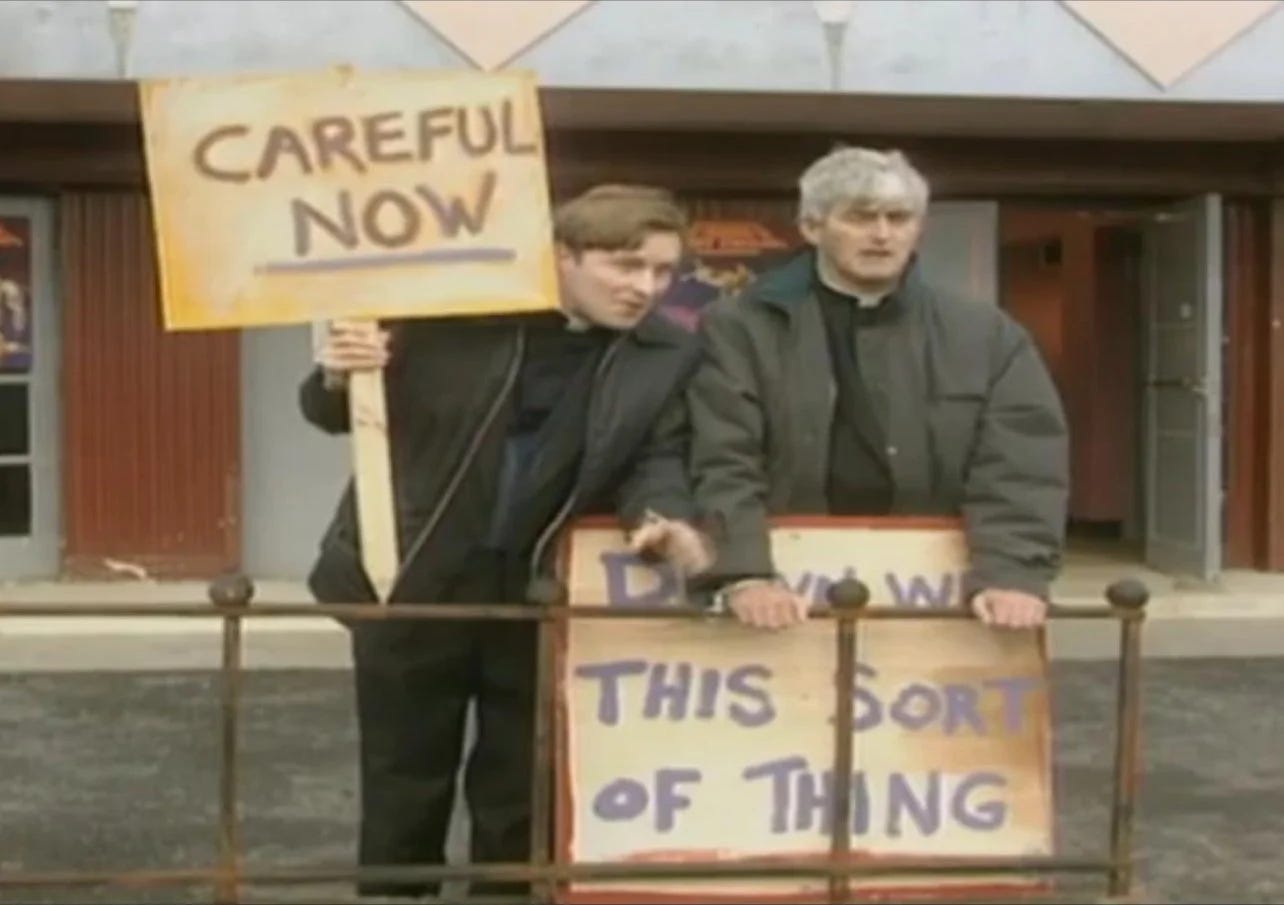Yesterday, Joe Biden announced federal pardons for anyone convicted of simple marijuana possession. This is huge, life-changing news for anyone in the US who had such a conviction. Even if you don’t end up in jail because of a conviction for a minor crime like this, it can have a massive impact on your ability to find employment, travel, and have healthy, stable relationships.
Ireland should follow the US in expunging convictions for possession of marijuana - but it should go further and decriminalise all personal drug use. Whoa there Katie, are you suggesting we make drugs legal? No. Under decriminalisation, drugs remain illegal but you will not get a criminal conviction for possession. Instead, you might get a fine or have the drugs confiscated, and you will be offered treatment.
It might surprise you to learn that of roughly 23,000 drug-related recorded crime incidents in 2020, about 16,000 were for personal possession. That’s about 70%. It shouldn’t surprise us. We know that prohibition doesn’t work, and we know that mind-altering substances have been used across different cultures for ceremonial, religious, and recreational reasons since the dawn of civilisation.
Policing personal drug use is very expensive and not very effective. Can you imagine how much Garda time it takes to investigate, arrest, and process 16,000 incidents? Is that how we want our Gardaí spending their time? Is it how we want people who use drugs to be treated?
It’s important to note here that drug use is common among people, especially young people, of all kinds of backgrounds and levels of wealth. However, young people from disadvantaged and marginalised communities are far more likely to be prosecuted for it.
Despite ever-increasing budgets thrown at Gardaí to try and quash drug use, it is consistently on the increase. In Ireland, approximately one person per day dies of an overdose. Our system is not working. Imagine if we took this approach instead:
We accept that a certain proportion of adults are going to take drugs (we do not have to like this, we simply accept it as reality);
We educate young people on the risks of drug use and discourage them from taking them;
We treat the small percentage of drug users who become addicted with compassion, and offer them support through the health system instead of taking them to court.
Did you know that drugs have been decriminalised in the Czech Republic since the early 90s, and in Portugal since 2001? In fact, there are many European countries who choose a different approach including Switzerland, Italy, Croatia, Poland and more. In these countries, you get a fine similar to a parking ticket instead of a criminal conviction and in many cases you’re offered counselling or rehab.
How does that work out for them, I hear you ask?
Petty crime goes down
Voluntary attendance at treatment centres goes up
Incidences of HIV/AIDS drop
Incarceration for drug-related offences drops
Overdose deaths decrease significantly
Sounds good, right? So why don’t politicians want to do it if it causes all these good results? Simply put, being seen as ‘hard on drugs’ is popular. There is a lot of stigma out there. The idea of supporting addicts to beat their problem and integrate back into society is more nuanced than simply saying ‘drugs are bad - go to jail’. It’s an easier message to sell to voters.
But it’s wrong. It looks at the problem from a moral perspective instead of looking at the evidence. A drug problem is a health issue, just like an addiction to alcohol, gambling, or a prescription drug like xanax. A person with a drug problem needs access to an adequately funded mental health unit, including in-patient and out-patient support. The last thing people in this situation need is a looming court case.
As with our recent referenda on gay marriage and abortion rights, I believe this is one where the people will be ahead of the politicians. But it’s unlikely to be something there will be a referendum on, so it’s something we all need to be talking to our politicians about.
The war on drugs is over, the drugs won.
The only question is whether we continue to fight a losing battle or change our approach.







